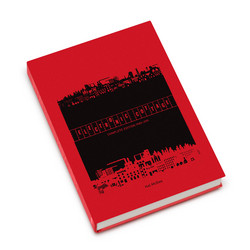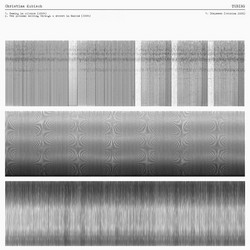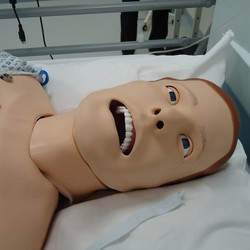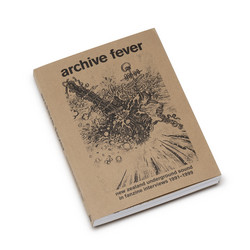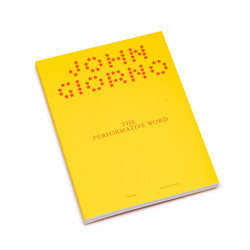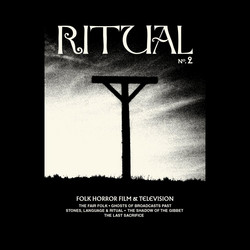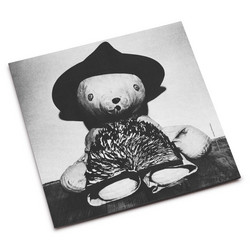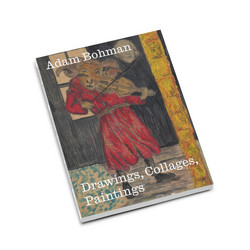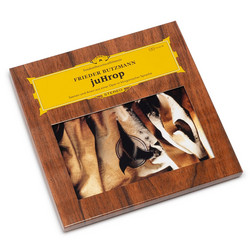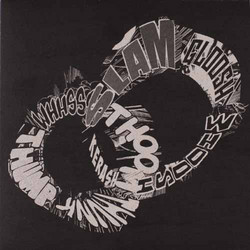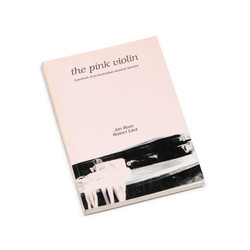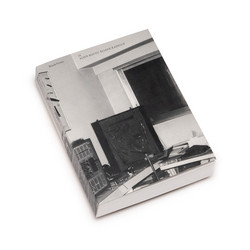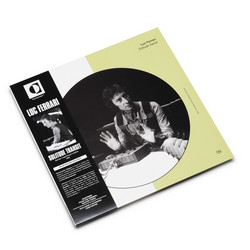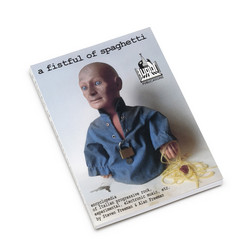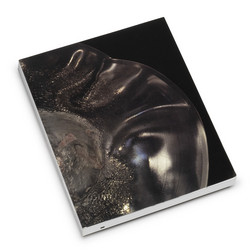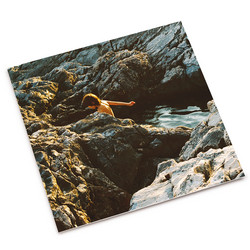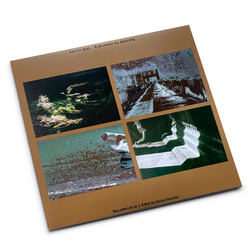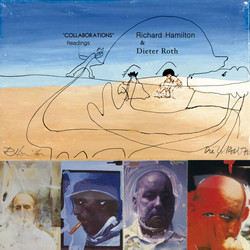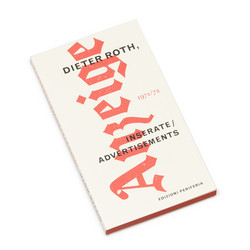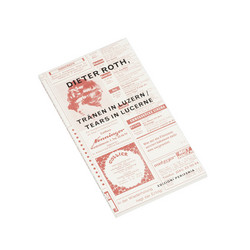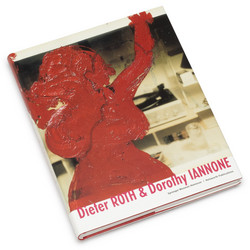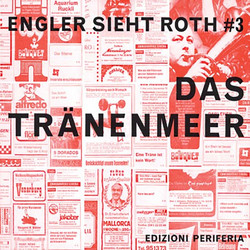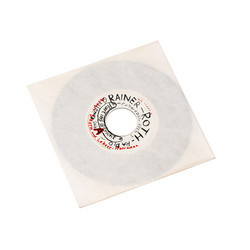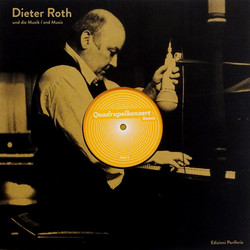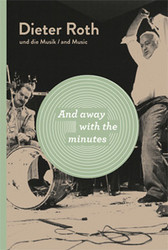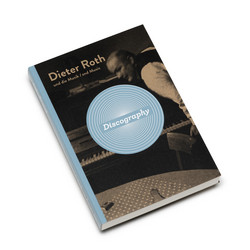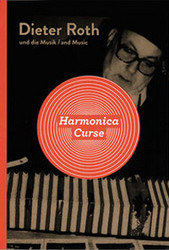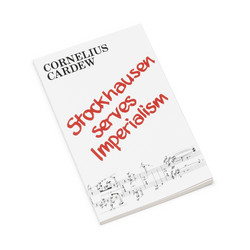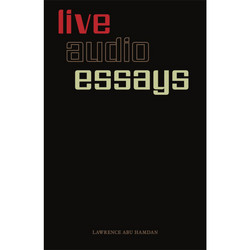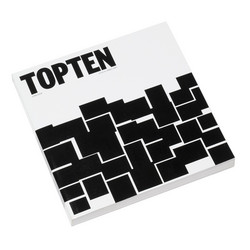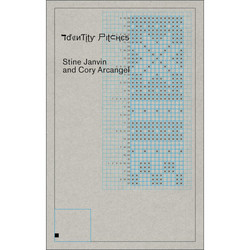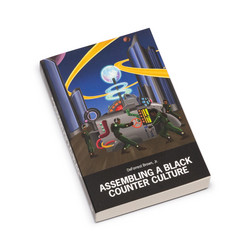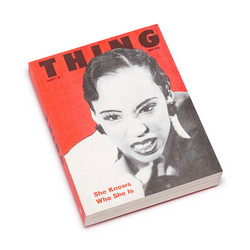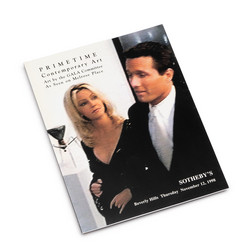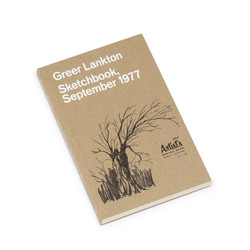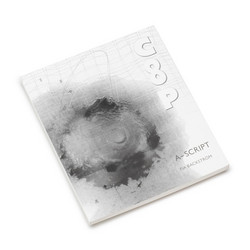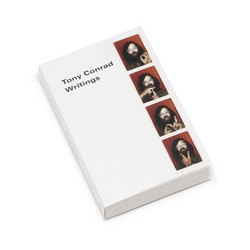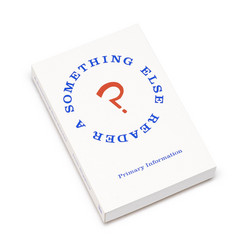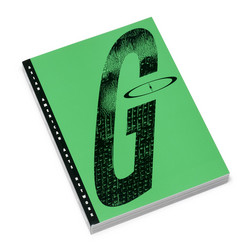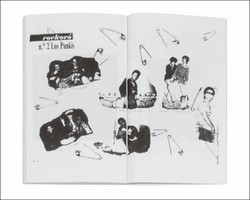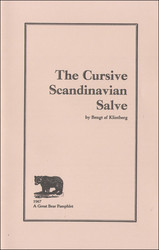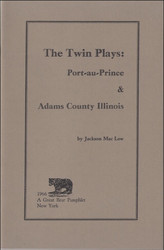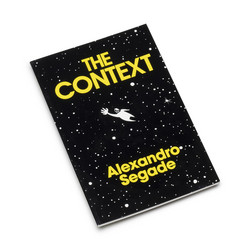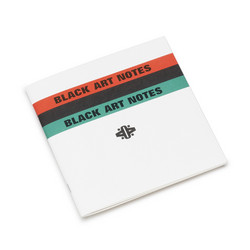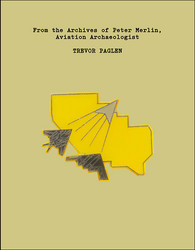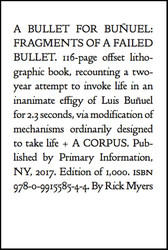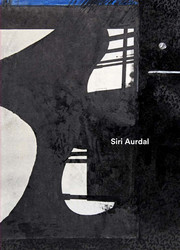Dieter Roth, Richard Hamilton
Canciones de Cadaques
Canciones de Cadaques is a musical collaboration between Dieter Roth and Richard Hamilton that was originally published by Hansjörg Mayer in 1976. It takes the form of a double 45 record and features the two artists alternately performing on vocals and guitar, with assistance from a Cadaqués dog named Chispas Luis, who periodically takes over vocal duties with a particularly sharp bark. This facsimile editions reproduces the original’s gatefold design, and features eight color photographs of the recording session taken by Rita Donagh.
Roth and Hamilton worked together from 1961 to 1998 and over this time, produced several projects across many mediums. At the time of the recording, the artists were working together in Cadaqués, Spain, where they also produced a series of drawings and paintings, which was accompanied by a drawing or painting that acted as a certificate to the original work. Both artists worked with music and sound, though in different capacities. Roth produced sounds works and created music throughout much of his life. He also ran a record label, Roth’s Verlag, that released his and other artists’ works in the 70s and 80s. Hamilton was actively engaged with music through his work, most notable of which was his design for the Beatles’ White Album cover.
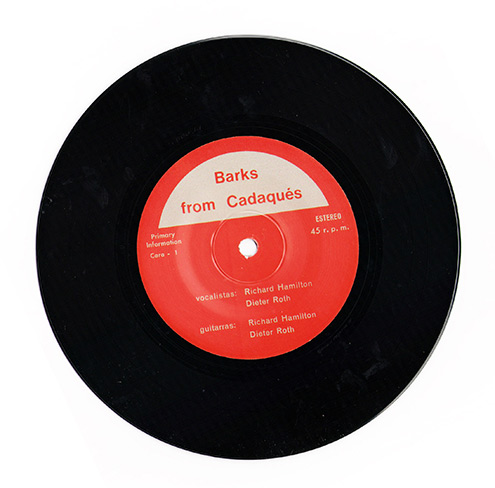
Dieter Roth (1930-1998) was a prolific German-Swiss artist whose diverse works included sculpture, painting, design, performances, books, poetry, and printmaking that referenced literature, music, history, and his own life. Roth challenged conventions of art by merging different media and utilizing materials that decayed over time. He frequently produced artists’ books, and his groundbreaking publications remain monumental and influential.
.
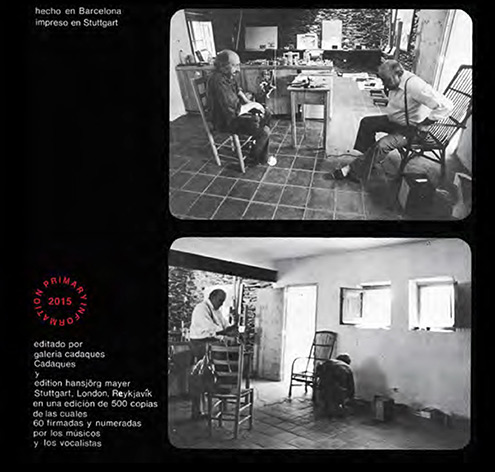
.
Richard Hamilton (1922-2011) was an English pioneer of Pop Art. His paintings, installations, collages, and prints combined his interest in high and low culture through consumer goods, commercial design, references to other artworks, and celebrities. Throughout his career, Hamilton also made overtly political works, mostly centered on his reactions to British politics.
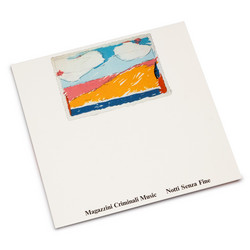
![data-cosm [n°1]](https://cdn.soundohm.com/data/products/2026-02/ikedda-data-cosm-1-jpeg.jpeg.250.jpg)
